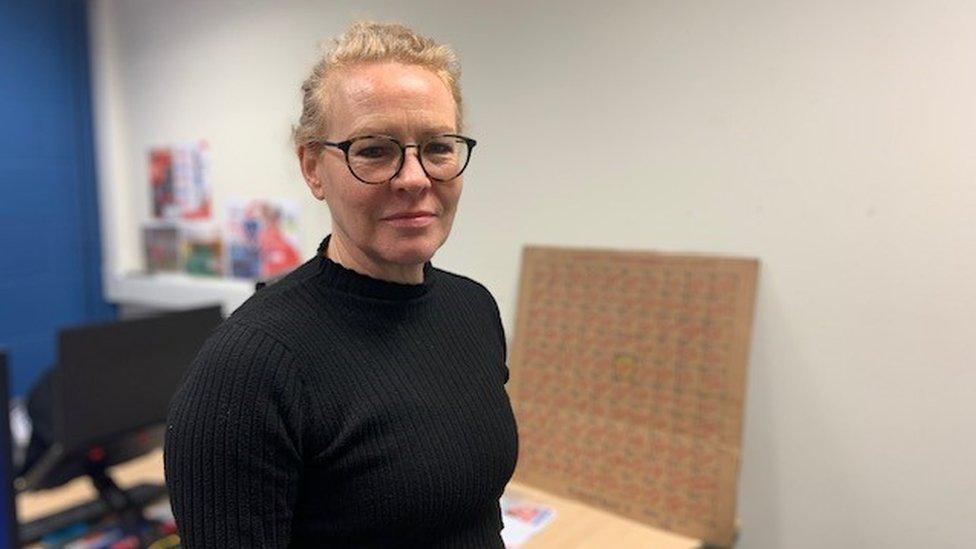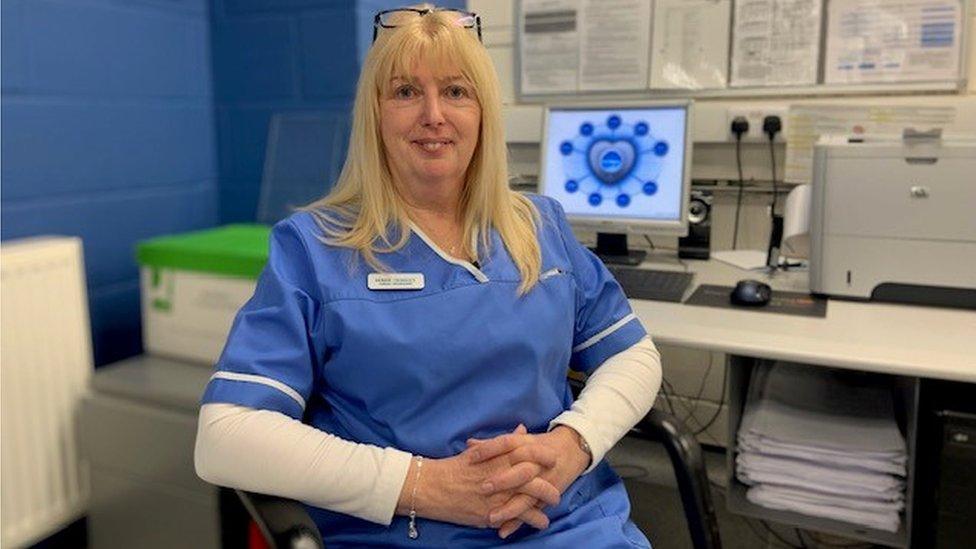Heart charity 'facing cuts' without new funding
- Published

Heartbeat CEO Louise Bache says it has been difficult applying for public funding
A Lancashire charity which has helped thousands of former heart patients stay healthy says it will have to start cutting services unless it can secure extra funding.
More than 900 people a week use Heartbeat, which runs gym and fitness classes in nine centres.
Most users are informal NHS referrals, but Heartbeat, which costs £1m-a-year to run, receives no public funding.
The charity says the financial crisis means people are less able to donate.
Cardiac physiologist Debbie Crossley said: "Especially post-Covid, all prices have gone up, everything that we use.
"The only thing that's not gone up is funding."
Debbie is part of a team that carries out NHS standard examinations on each gym member to make sure they are fit enough to take part.
The team is based on-site to provide back up in case anyone at the classes has a medical issue.

Debbie Crossley worries heartbeat 'won't be here' in a couple of years
David Bolton, 86, has been a regular since having heart surgery four years ago.
He said: "The thing about Heartbeat is, it's not just a gym.
"You're surrounded by people who have had similar experiences and of course your back up is a medical team... if things go pear-shaped, you've got them there".
Jimmy Martin was Everton's kit manager for 34 years before his heart attack last summer. He was referred to the charity by Blackpool Hospital, which treated him.
"It's the best thing I've ever done. People have been brilliant. I feel great, back to normal again," he said.
"They way they look after people is fantastic."
Jimmy is now getting in touch with contacts in the Premier League for memorabilia to raise money for the charity.
The charity has been running for 40 years, and relies heavily on donations.
Ms Bache said: "Utilities have rocketed sky-high because the general cost of living has increased so much, people aren't wanting to donate as much to charities now.
"They have other costs that they need to deal with first."
Charities such as Heartbeat can apply for some public funding, but Ms Bache said that in practice it can be very difficult.
She said: "We seem to come across a block (where we're told), 'Yes, we think this would be a funded programme, but either money's run out or there's not enough to fund it.'"
Previous attempts have stalled before the application was even formally submitted.
'Critical point'
The National Council for Voluntary Organisations (NCVO) is trying to get the funding process for charities such as Heartbeat made simpler, and for more long-term grants to allow a stable funding stream.
NCVO policy and insights manager Sam Mercadante said trying to secure funding was common challenge for members.
"We know this kind of work requires stability, it requires sustainable funding, it requires planning for the future.
"Often the impacts that organisations are trying to create in their communities take many years.
"You want people and communities to have the reassurance that the service they need will be there for the long term," she said.
After a gap of several years, the charity is about to begin the application process again for another grant, while still pushing ahead with fundraising.
Ms Crossley says it has reached a critical point.
"If we don't get the funding from somewhere else the worry is that Heartbeat won't be here after two or three years," she said.
"So anyone further down the line, or someone's family, they won't have Heartbeat to come to, and that would be a terrible shame after 40 years".
NHS England said it could not comment on Heartbeat's specific case, but said legislation introduced in 2022 supported local health funding for suitable charities.

Why not follow BBC Lancashire on Facebook, external, X, external and Instagram, external? You can also send story ideas to northwest.newsonline@bbc.co.uk, external